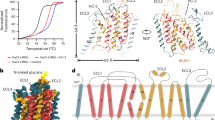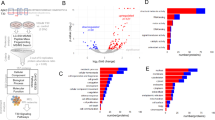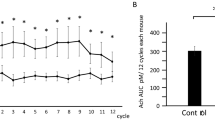Abstract
THE well-known work of Prof. O. Loewi and of Sir Henry Dale and their collaborators has established the widespread function of acetylcholine as a chemical transmitter of nervous action. It has further been established that there exists in the animal organism a specific enzyme, choline-esterase, which effects the rapid destruction of this ester. Interest, therefore, now centres round the mechanism whereby acetylcholine is produced in the body.
This is a preview of subscription content, access via your institution
Access options
Subscribe to this journal
Receive 51 print issues and online access
$199.00 per year
only $3.90 per issue
Buy this article
- Purchase on Springer Link
- Instant access to full article PDF
Prices may be subject to local taxes which are calculated during checkout
Similar content being viewed by others
References
Biochem. J., 31, 817 (1937).
Author information
Authors and Affiliations
Rights and permissions
About this article
Cite this article
STEDMAN, E., STEDMAN, E. Mechanism of the Biological Synthesis of Acetylcholine. Nature 141, 39–40 (1938). https://doi.org/10.1038/141039b0
Issue Date:
DOI: https://doi.org/10.1038/141039b0
This article is cited by
-
Enthält die Menschliche Placenta Cholinesterase?
Klinische Wochenschrift (1939)
-
Mechanism of the Biological Synthesis of Acetylcholine
Nature (1938)
Comments
By submitting a comment you agree to abide by our Terms and Community Guidelines. If you find something abusive or that does not comply with our terms or guidelines please flag it as inappropriate.



